Breastfeeding is a beautiful and miraculous journey that not only creates an unbreakable bond between mother and baby but also provides essential nutrients for optimal growth and development. As a side note, if you’re having issues with incontinence, this peri bottle parent.guide can help. As a new mom, you want nothing but the best for your little one, which means ensuring they receive all the nourishment they need.
That’s why understanding breastfeeding nutrition is key to nurturing a healthy baby. In this article, we’ll be shedding some light on how to help you maintain a well-balanced diet while breastfeeding so that you can give your bundle of joy the very best start in life.
Eat a Well-Balanced Diet
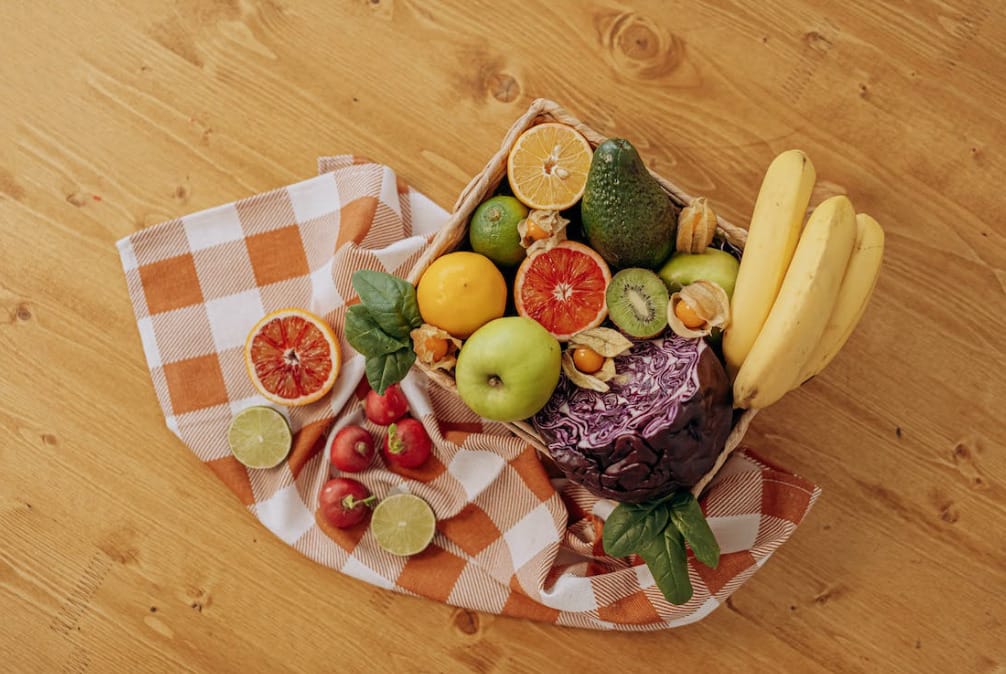 Let me start with the fact that you are your baby’s main source of nourishment. Your meals should include a variety of nutrient-rich foods from different food groups.
Let me start with the fact that you are your baby’s main source of nourishment. Your meals should include a variety of nutrient-rich foods from different food groups.
Fresh fruits and veggies provide all essential vitamins and minerals, while whole grains offer fiber for healthy digestion. Don’t forget about lean proteins like chicken, fish, and tofu – they’re important for your little one’s growth.
While it may be tempting to reach for sugary snacks or fast food when you’re exhausted from sleepless nights, try to opt for healthier alternatives instead. Snack on nuts or seeds for protein and healthy fats, enjoy yogurt with fresh berries as a sweet treat, or whip up smoothies packed with leafy greens.
Consume More Omega-3 Fatty Acids
Omega-3 fatty acids are essential for your baby’s brain development …



 Adopting a healthy lifestyle is another important factor in maximizing the relief obtained from cortisone injections. This involves maintaining a balanced diet, regular exercise, and weight management. Obesity or excessive weight can place additional stress on the joints, exacerbating pain and reducing the effectiveness of the injection. By managing your weight and engaging in regular exercise, you can help support the injected joint, reduce strain, and improve overall outcomes. Additionally, consuming an anti-inflammatory diet rich in fruits, vegetables, whole grains, and lean proteins can further enhance the benefits of the cortisone injection.
Adopting a healthy lifestyle is another important factor in maximizing the relief obtained from cortisone injections. This involves maintaining a balanced diet, regular exercise, and weight management. Obesity or excessive weight can place additional stress on the joints, exacerbating pain and reducing the effectiveness of the injection. By managing your weight and engaging in regular exercise, you can help support the injected joint, reduce strain, and improve overall outcomes. Additionally, consuming an anti-inflammatory diet rich in fruits, vegetables, whole grains, and lean proteins can further enhance the benefits of the cortisone injection.

 Another form of depression is postpartum, which occurs after having a baby. This type …
Another form of depression is postpartum, which occurs after having a baby. This type …
 One of the best ways to maintain weight you have lost is to exercise often. Exercise helps burn calories and can help keep your metabolism up. It also helps to build muscle, which in turn helps burn more calories. Try to fit in at least 30 minutes of exercise most days of the week.
One of the best ways to maintain weight you have lost is to exercise often. Exercise helps burn calories and can help keep your metabolism up. It also helps to build muscle, which in turn helps burn more calories. Try to fit in at least 30 minutes of exercise most days of the week. 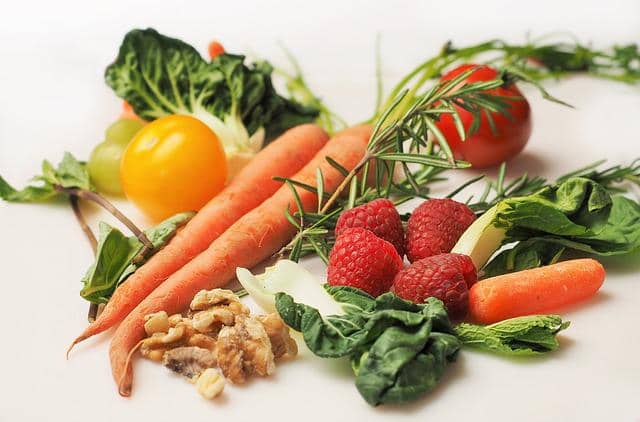 Of course, diet is also important for
Of course, diet is also important for 
 A balanced diet is key to maintaining good health. Eating various healthy foods will give your body the nutrients it needs to function properly. Avoid processed foods and sugary drinks as much as possible. Eating a balanced diet will help you stay healthy and feel your best. Some people make meal plans and track their macros to ensure they’re getting all the nutrients they need. This is how they ensure that they are getting enough nutrients.
A balanced diet is key to maintaining good health. Eating various healthy foods will give your body the nutrients it needs to function properly. Avoid processed foods and sugary drinks as much as possible. Eating a balanced diet will help you stay healthy and feel your best. Some people make meal plans and track their macros to ensure they’re getting all the nutrients they need. This is how they ensure that they are getting enough nutrients.
 Collaborative training allows for shared learning and the opportunity to learn more about each component’s perspective in a different professional environment. The focus on these courses often …
Collaborative training allows for shared learning and the opportunity to learn more about each component’s perspective in a different professional environment. The focus on these courses often …
 They could change over time, and they vary from person to person. Some individuals don’t have any symptoms or experience them later in life. Someone might not understand they have the celiac disease until they create a nutrient deficiency or anemia. Kids are more likely to come up with gastrointestinal symptoms compared to adults. These signs include abdominal pain, bloating nausea, nausea, weight loss, depression, and fatigue.
They could change over time, and they vary from person to person. Some individuals don’t have any symptoms or experience them later in life. Someone might not understand they have the celiac disease until they create a nutrient deficiency or anemia. Kids are more likely to come up with gastrointestinal symptoms compared to adults. These signs include abdominal pain, bloating nausea, nausea, weight loss, depression, and fatigue. For many people with celiac disease, switching to a gluten-free diet considerably enhances the symptoms, and also, an individual might notice an improvement in weeks or days. In kids, the small intestine …
For many people with celiac disease, switching to a gluten-free diet considerably enhances the symptoms, and also, an individual might notice an improvement in weeks or days. In kids, the small intestine …
 Salt Yoga is essentially a yoga practice done in saltwater. Salt cave is a cave mostly built for salt treatment. Speleotherapy or salt treatment is another treatment way of coping with asthma and other respiratory troubles. Following this ancient organic therapy process, a business of dwelling salt therapy merchandise has been produced. These aerosol salt therapy products put miniature sodium microparticles and damaging salt in the area’s air to ease long-term breathing.
Salt Yoga is essentially a yoga practice done in saltwater. Salt cave is a cave mostly built for salt treatment. Speleotherapy or salt treatment is another treatment way of coping with asthma and other respiratory troubles. Following this ancient organic therapy process, a business of dwelling salt therapy merchandise has been produced. These aerosol salt therapy products put miniature sodium microparticles and damaging salt in the area’s air to ease long-term breathing. As cystic fibrosis patients fight to breathe, suffer from lung distress, coughing, and chronic sinus issues, research improvements have made it feasible for victims to use hypertonic saline solution to ease symptoms. Research …
As cystic fibrosis patients fight to breathe, suffer from lung distress, coughing, and chronic sinus issues, research improvements have made it feasible for victims to use hypertonic saline solution to ease symptoms. Research …

 Before deciding on a doctor, you should meet with him in person because he may not have the manners you desire. This dialogue will help you find out if he has an excellent personality. Visiting the doctors will give you a …
Before deciding on a doctor, you should meet with him in person because he may not have the manners you desire. This dialogue will help you find out if he has an excellent personality. Visiting the doctors will give you a …


 The first thing that you ought to remember is to keep
The first thing that you ought to remember is to keep 


 There are many problems associated with dental health, like cavities corrections, yearly cleanings, or other complex remedies. Following all those facets, a trusted dentist ought to know it well. It reveals their authenticity in providing dental hygiene. In cases like this, it’s not simple to locate a professional who matches your specific need, and consequently, the search procedure can be somewhat lengthy.
There are many problems associated with dental health, like cavities corrections, yearly cleanings, or other complex remedies. Following all those facets, a trusted dentist ought to know it well. It reveals their authenticity in providing dental hygiene. In cases like this, it’s not simple to locate a professional who matches your specific need, and consequently, the search procedure can be somewhat lengthy. They do not fall in the domain of health solutions, but a significant part of men and women opt for these things, as it boosts self-esteem and the overall look of somebody’s facial features. In the present society, the very first impression appears to be to make, and consequently, having a gap-toothed grin isn’t too likely …
They do not fall in the domain of health solutions, but a significant part of men and women opt for these things, as it boosts self-esteem and the overall look of somebody’s facial features. In the present society, the very first impression appears to be to make, and consequently, having a gap-toothed grin isn’t too likely …
 The habit of healing and rejuvenation came with the status of becoming a true yogi. The daily practice of yoga brings the body to a state of sustained calm. The physical and emotional being is healthy and rested and can perform many functions in this state of rest. Even though yoga is not a faith, this antique tradition can affect a person in a holy sense because of the seven religious foundations that yoga learners are obligated to follow together. It illustrates the concept that how we treat other animals and individuals reflects on us.
The habit of healing and rejuvenation came with the status of becoming a true yogi. The daily practice of yoga brings the body to a state of sustained calm. The physical and emotional being is healthy and rested and can perform many functions in this state of rest. Even though yoga is not a faith, this antique tradition can affect a person in a holy sense because of the seven religious foundations that yoga learners are obligated to follow together. It illustrates the concept that how we treat other animals and individuals reflects on us.
 The stoma requires rigorous care and treatment, especially on its girth, as well as the stoma button. You need to keep it completely clear at all times to avoid infection in the area. Many colostomy supplies for effective management and care. Each of these products is important and a must-have product that you will always need after surgery. If you already know what a colostomy is and what to expect before you have surgery, this should come as no surprise. However, if you had emergency surgery and getting an ostomy was the last thing you expected, your doctor will have a lot to tell you about your current condition, how it went, and that care and …
The stoma requires rigorous care and treatment, especially on its girth, as well as the stoma button. You need to keep it completely clear at all times to avoid infection in the area. Many colostomy supplies for effective management and care. Each of these products is important and a must-have product that you will always need after surgery. If you already know what a colostomy is and what to expect before you have surgery, this should come as no surprise. However, if you had emergency surgery and getting an ostomy was the last thing you expected, your doctor will have a lot to tell you about your current condition, how it went, and that care and …

 The use of the web and data software to retrieve
The use of the web and data software to retrieve  Patient security, both physical and documentary, is vital to an individual’s safety and success. HIPAA-protected health information spans many different healthcare environments and many different professions. The patient must consent first, but you can share their name with other men and women. Medical record retrieval is something that is also required in several professions, such as licensed workers. HIPAA protects patients from attorneys …
Patient security, both physical and documentary, is vital to an individual’s safety and success. HIPAA-protected health information spans many different healthcare environments and many different professions. The patient must consent first, but you can share their name with other men and women. Medical record retrieval is something that is also required in several professions, such as licensed workers. HIPAA protects patients from attorneys …

 The first written mention of toothache occurred about 5,000 years ago in Mesopotamia. People begged religions such as Shamash, Anu, and Ea to cure their painful oral ailments. Around 2250 BC. (before the regular era), physicians began to treat toothaches with more than invocations to this or that god. The first physicians appeared in Egypt around 2600 BC. (around the time the pyramids were built), One of the greatest was Hesi-Re, who was believed to be the “primordial dentist.”
The first written mention of toothache occurred about 5,000 years ago in Mesopotamia. People begged religions such as Shamash, Anu, and Ea to cure their painful oral ailments. Around 2250 BC. (before the regular era), physicians began to treat toothaches with more than invocations to this or that god. The first physicians appeared in Egypt around 2600 BC. (around the time the pyramids were built), One of the greatest was Hesi-Re, who was believed to be the “primordial dentist.” 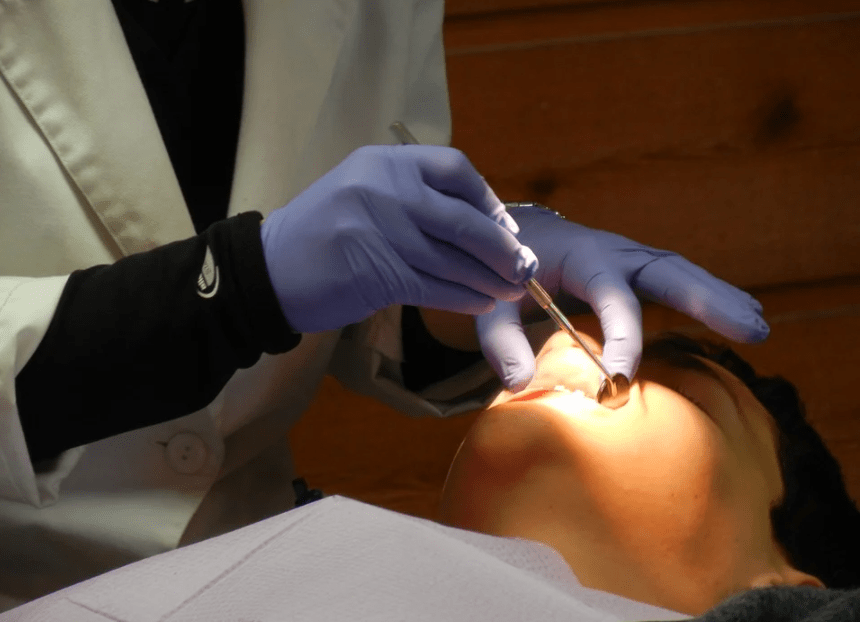 Everyone knows that dentistry is a science that deals with teeth (dentition). However, it is a massive branch of medicine that deals with the prevention, diagnosis, and treatment of disorders, diseases,
Everyone knows that dentistry is a science that deals with teeth (dentition). However, it is a massive branch of medicine that deals with the prevention, diagnosis, and treatment of disorders, diseases, 
 Stay Active
Stay Active
 One thing that you have to remember is, not all dentists are licensed or capable of performing oral surgeries. You can’t just walk into a dental clinic and expect them to perform the procedure that you need to help treat your dental problem.
One thing that you have to remember is, not all dentists are licensed or capable of performing oral surgeries. You can’t just walk into a dental clinic and expect them to perform the procedure that you need to help treat your dental problem.
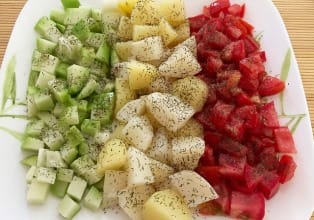 For starters, keep in mind that not all nutrients and other food substances that are beneficial to good health have been identified so far. Therefore, by consuming a wide assortment of various foods, you will ensure that your body and organism get all the important disease-fighting elements. Additionally, this will also limit your exposure to various toxic chemicals and pesticides that may be found in certain foods. It is highly recommended that you consume fresh foods such as what are being offered by Diet to Go.
For starters, keep in mind that not all nutrients and other food substances that are beneficial to good health have been identified so far. Therefore, by consuming a wide assortment of various foods, you will ensure that your body and organism get all the important disease-fighting elements. Additionally, this will also limit your exposure to various toxic chemicals and pesticides that may be found in certain foods. It is highly recommended that you consume fresh foods such as what are being offered by Diet to Go.
 So what are the factors that you should consider before you buy the wrist wraps? Well, for you to buy the right products that will be able to give you the protection that you need, there are things that you need to keep in mind. Here are some of those things.
So what are the factors that you should consider before you buy the wrist wraps? Well, for you to buy the right products that will be able to give you the protection that you need, there are things that you need to keep in mind. Here are some of those things.
 Studies reveal that jumping on a trampoline o is more beneficial to the health than jogging. Studies further show that jumping on a trampoline for one hour burns more calories than if jogging for the same time frame. Also unlike cardio work out which sometimes lead to breathlessness thus lowering one’s metabolism, with trampoline your metabolism is improved thus burning calories.
Studies reveal that jumping on a trampoline o is more beneficial to the health than jogging. Studies further show that jumping on a trampoline for one hour burns more calories than if jogging for the same time frame. Also unlike cardio work out which sometimes lead to breathlessness thus lowering one’s metabolism, with trampoline your metabolism is improved thus burning calories.
 Binaural programs that use beats have gained a massive popularity and are considered a digital drug that can fix high levels of stress leading to a relaxed mind. The value of binaural programs is in freeing the mind and creating calmness hence increasing the power of meditation and relaxation. At the touch of the button, Binaural beats activate the mind to a more relaxed mode yet remains active to focus on issues at hand.
Binaural programs that use beats have gained a massive popularity and are considered a digital drug that can fix high levels of stress leading to a relaxed mind. The value of binaural programs is in freeing the mind and creating calmness hence increasing the power of meditation and relaxation. At the touch of the button, Binaural beats activate the mind to a more relaxed mode yet remains active to focus on issues at hand.
 You might be wondering, what are culinary arts? Well, just until recently it has been described as traditional cooking styles. It was associated with Chinese, French cuisine, and Japanese traditional cooking techniques. However, with the current trend, culinary arts is demanding more chefs with the ability to blend different skills to give out one fantastic package. They are using the term “fusion” this is to mean combining new and traditional cooking styles to give a new culinary art.
You might be wondering, what are culinary arts? Well, just until recently it has been described as traditional cooking styles. It was associated with Chinese, French cuisine, and Japanese traditional cooking techniques. However, with the current trend, culinary arts is demanding more chefs with the ability to blend different skills to give out one fantastic package. They are using the term “fusion” this is to mean combining new and traditional cooking styles to give a new culinary art.
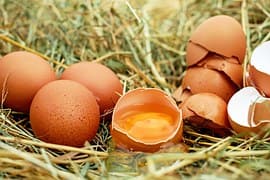 Some people feel that a meal is not complete without eggs. While other think that eggs are solely for breakfast. How true is this, well, let us do away with all these myths and try incorporating eggs into our main dishes? Add eggs to your dinner fries and even for a lunch plate. You will be amazed how great they taste with different dishes. Quench that protein crazing with more eggs. Who said we could only get animal proteins from meat only.
Some people feel that a meal is not complete without eggs. While other think that eggs are solely for breakfast. How true is this, well, let us do away with all these myths and try incorporating eggs into our main dishes? Add eggs to your dinner fries and even for a lunch plate. You will be amazed how great they taste with different dishes. Quench that protein crazing with more eggs. Who said we could only get animal proteins from meat only.